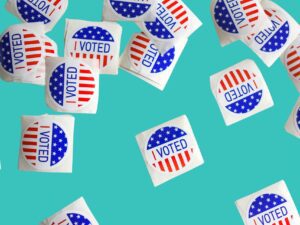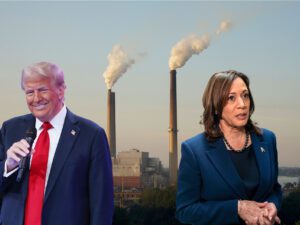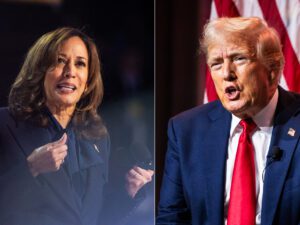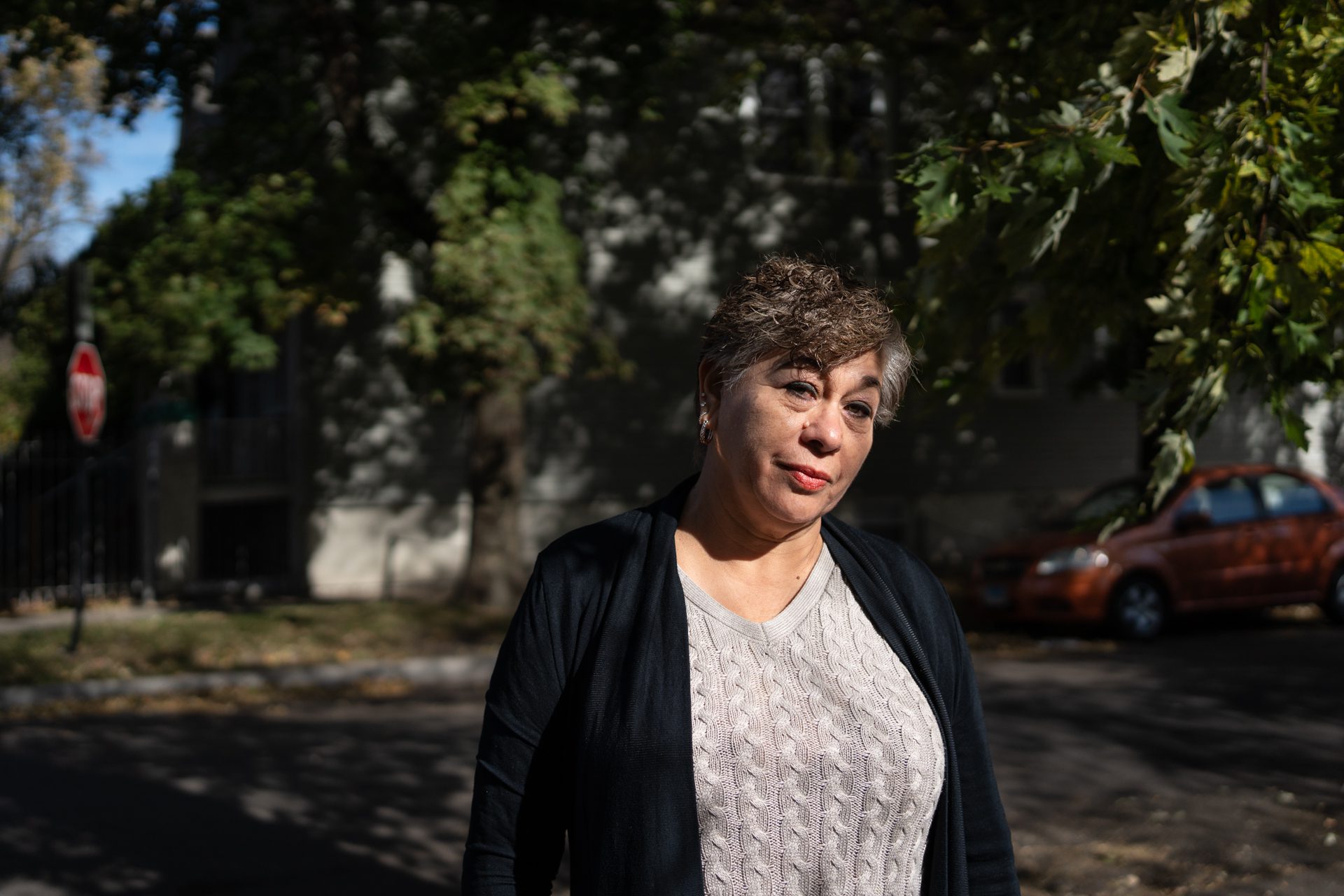 Max Herman/Borderless Magazine
Max Herman/Borderless MagazineAs voters head to the polls, immigrant communities share what’s at stake for them this election.
One in seven Illinois residents is an immigrant. More than half of these immigrants are naturalized U.S. citizens eligible to vote.
Across Chicago, voters are casting their ballot in a consequential election, deciding between Vice President Kamala Harris and former President Donald Trump. This year’s election could profoundly impact the future of immigration policy, environmental justice and women’s rights in Chicago and across the country.
Here is what is on the minds of some voters in the immigrant community as they cast their vote in the presidential election.
News that puts power under the spotlight and communities at the center.
Sign up for our free newsletter and get updates twice a week.
Maria del Refugio Zavala, an immigrant from Mexico, has been a citizen for nearly a year and is excited to vote for the first time in a U.S. presidential election.
“I want to vote for the person who I see is willing to help my community, our schools and kids during the school year in high-need neighborhoods,” said Zavala, a Back of the Yards resident.
As she heads to the polls, she worries about the future of Deferred Action for Childhood Arrivals (DACA). She hopes the next president could provide better protections from deportation for immigrant students and workers.
Sunjay Kumar was born in the U.S. after his father immigrated from India in the ‘80s. Kumar, an Indian American from a mixed-status family, said neither candidate is making an effort to support asylum seekers and people who are undocumented — which is “really worrying.” However, he thinks a Harris presidency wouldn’t be as bad as a second term with Trump, which he called “terrifying in a lot of ways.”
Another concern on Kumar’s mind is Harris and Trump’s stance on Palestine and U.S. military aid for Israel. “Neither of them [is] showing any signs toward being in favor of having a free Palestine…which is really awful,” he said.
Read More of Our Coverage
Isabela Jaimes, a graduate student at the University of Illinois at Chicago studying urban planning and policy, said it was important that the next president represent young people’s views.
She believes the outcome of the presidential elections will be especially felt in low-income, environmental sacrifice zones like her hometown of Berwyn, which are disproportionately exposed to pollution because of their proximity to industrial activity.
While actions at the federal level are not immediately felt at the local level, Jaimes said, “trickle-down effects will end up finding their way into the most disenfranchised communities — the communities that are going to struggle the most.”
Mykell Miller, a community volunteer living in Uptown, said he is concerned about U.S. support of Israel’s war on Gaza.
He also worries for his future safety as a transgender person should Trump get re-elected. Miller referenced anti-transgender comments Trump and his allies have made, including a vow by Trump to ‘stop’ gender-affirming care for minors if re-elected.
“If there is a Trump presidency, chances are very high that I’ll have to take asylum in another country,” Miller, who is Chinese American, said.
Read More of Our Coverage
Stephen De La Rosa, a retired manufacturing manager in DuPage County who comes from a family of Mexican immigrants, is concerned about increasing hostility toward immigrants and people of color by extremist groups emboldened by xenophobic rhetoric.
“I don’t have a lot of faith [in either candidate],” De La Rosa said. Still, he said he remains confident in his community uniting and being ready for either outcome.
Lenette Collias, whose mother is from Italy, said education is a key issue influencing how she votes. “All kids deserve to get a quality education and [be able to] graduate from college,” Collias said.
Another deciding factor for her is high grocery bills. “Everyone is struggling, and you shouldn’t have to struggle with groceries,” she said.
“Everybody has a choice for whom they vote for,” Collias said. “I placed my vote already, so I’m done. That’s why we live in America. We want a little sense of what we can do without being shot, without being corrupted…You hope for a little better life.”
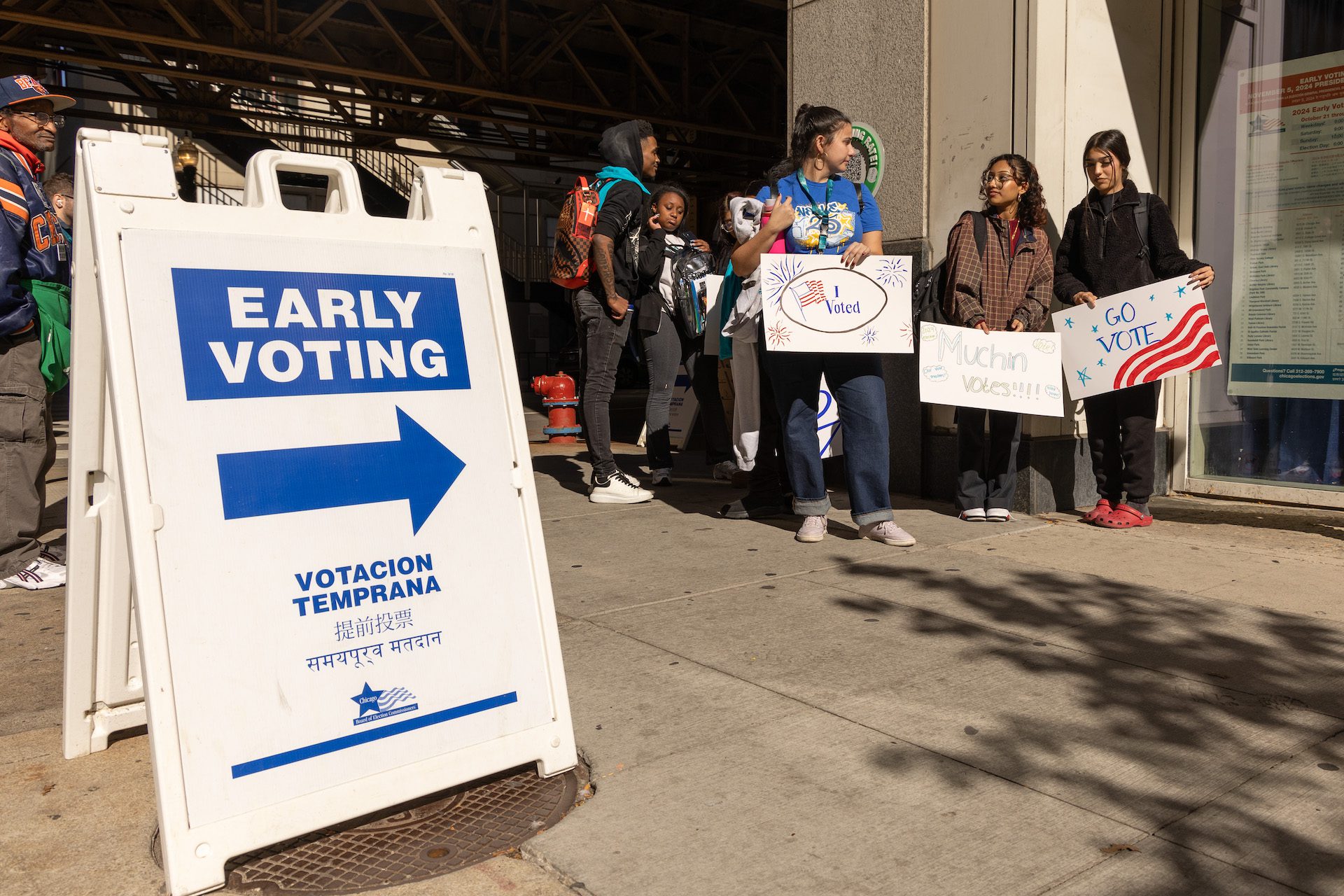
Read More of Our Coverage
Anne Cole, who is from Nigeria before becoming a citizen, wants to see Harris become president. Cole expressed frustration with Trump’s rhetoric about women, immigrants, and communities of color.
“[He] doesn’t respect women, doesn’t respect anybody, doesn’t want anybody, any foreigner, to live in America,” Cole said. “So we don’t want it. We want somebody that will support everybody.”
Natalia Ponce, a longtime Illinois resident and daughter of Hispanic immigrants, said she probably won’t vote in this year’s election. Women’s rights are a priority for her and have become increasingly concerning, but she ultimately doesn’t like what either candidate has to offer.
“I know it’s my civil duty to vote,” Ponce said. “[But] I feel like me voting just because I have to is not right.”
Ponce said her family and friends feel the same. Balancing work and financial obligations has meant she and her family haven’t had much time to research either candidate.
“I feel like it’s almost a privilege to say, ‘I have time to watch the Trump rally,’” Ponce said. “Most of my family and friends don’t have time to think about that.”
Aydali Campa is a Report for America corps member and covers environmental justice and immigrant communities for Borderless Magazine. Send her an email at [email protected]
Katrina Pham is Borderless Magazine’s audience engagement reporter. Email Katrina at [email protected].
Fatema Hosseini is a Roy W. Howard Investigative Reporting fellow covering immigrant communities for Borderless Magazine. Send her an email at [email protected]
